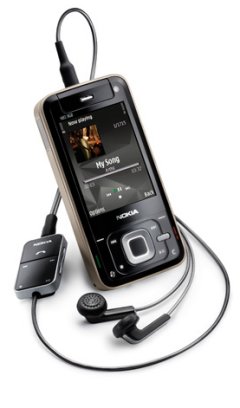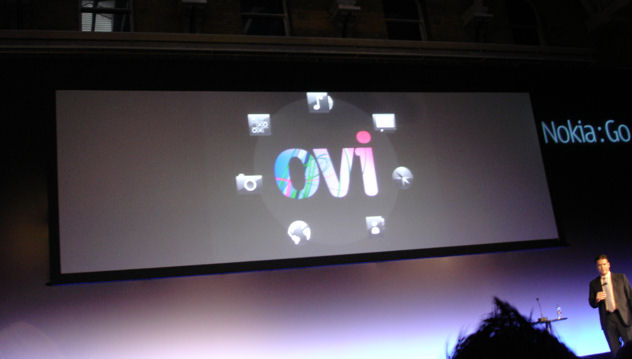 Coming out of Nokia’s Go:Play event was the announcement (finally) of Nokia’s Music Store, and while it was expected, there are still a number of questions about the service that need answering.
Coming out of Nokia’s Go:Play event was the announcement (finally) of Nokia’s Music Store, and while it was expected, there are still a number of questions about the service that need answering.
One of these is if the store is designed to deliver a profit to Nokia, or simply to be a revenue neutral strand in the overall Ovi network of services. Why is this important? Because the main competitor in the eyes of the public – Apple’s iTunes – has always been seen as delivering neutral or minimal profits. It’s there to drive the sale of more iPods.
With so much of the model for the Nokia Music Store looking similar to ITMS (the ITunes Music Store), right down to the individual pricing of the tracks (79p on iTunes, listed as 80p on all the demo screens I saw at Go:Play) I’m struggling to see where Nokia could make significantly more profit than Apple – and that’s before Nokia consider having to pass over a cut of the revenue to the mobile operators.
Because the other 800lb gorilla in the room is the body of Network Operators, who pretty much all have their own music stores as well and aren’t going to be particularly pleased that Nokia is coming to potentially turn them into bit-pipes. That’s going to need some careful handling from the Finnish management to ensure they still have the prime selling slots in the Network stores and catalogues.
And before everyone gets on their high horse over DRM, yes it is a DRM store, and they’ll be delivering at nominally 192kbps with Windows Media. This locks out a number of the power users of smartphones who I'd expect to be toting Macs and Linux desktops – although they could still use the mobile based component to purchase and download the music (you can do both, and more than once, so restoring lost tracks is just another download but with no subsequent purchase required).
I don’t think this is the target market though. Us power users are more than happy cutting and mixing our own ringtones, but the ringtone market, which can go as high as £3 per ringtone – that’s where the store is going to be a success. The ability to grab not just a few seconds, but an entire track, at listenable quality, and have it on the phone after a few clicks is going to drive a huge number of purchases, especially of mainstream music. You can’t buy music directly from an iPod – you will be able to with a mobile phone. Meet the USP for the music store. Immediate… impulsive… intoxicating… it could well be a winner just for that.

But what’s most interesting about the Nokia Music Store isn’t the mobile industry’s involvement – it’s the music industry. On stage with Nokia to discuss the Music Store was Rob Wells from Universal Records – that would be the same Universal that changed their Apple ITunes Music Store so they could withdraw at any time. And here they are on the stage with Nokia.
The incumbents in the music industry desperately need someone to step up to the plate and gain at the very least parity with Apple so they can start driving down wholesale prices in a bidding war to try and regain their lost profits through digital downloads. When Universal decided that the ‘fixed price’ approach from Steve Jobs was not completely for them, commentators wondered what they had up their sleeve. Looks like they think Nokia was their ace.
This of course means that Nokia are probably getting a very good deal for the music – it’s their stated aim to get every track available into the store, and starting with the majors is one way to get a lot of the choice. What’s going to be interesting from a musician’s point of view is their promise of “local bands on local sites” approach to new and underground music, and if smaller publishers such as CD Baby, or even individual bands, will be able to sign up and sell the music through the store. Providing a clean route to market for new bands could place the store well in a rich vein of music.

All told, there’s nothing genuinely surprising about the Music Store – ever since Nokia purchased the LoudEye system for white-boxing a Windows Media store, it was more a case of when they would launch, not if. By rolling it into the combined Ovi service, it partially takes the pressure off it – the whole Ovi service will be judged, not just a single strand.
But conversely that means that the music store may not be regarded as a central plank in Nokia’s strategy. How well it will be marketed, and if the networks will allow the music traffic through, are going to be the two key questions in the run up to the first European store launching before Christmas.
Ewan Spence, All About Symbian
